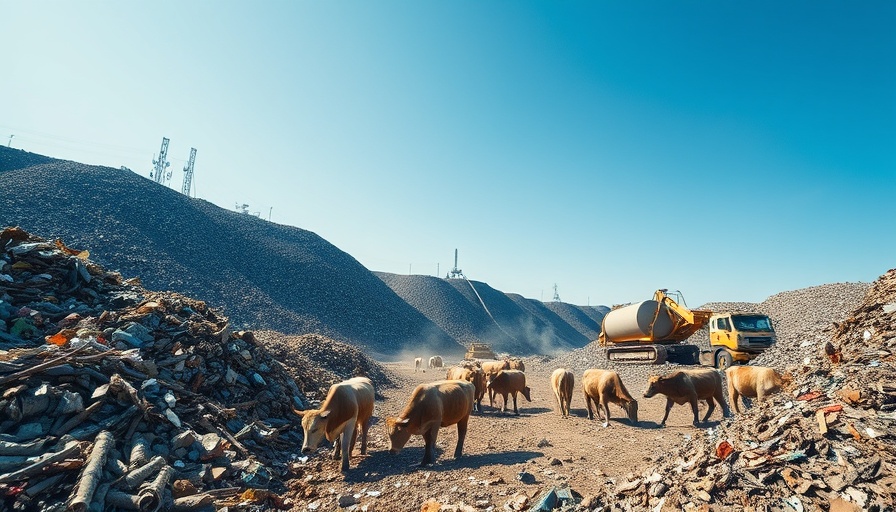
Understanding Methane: A Key Player in Climate Change
Methane is often overshadowed by carbon dioxide when discussions of greenhouse gases arise, yet it holds a significant impact on global warming. As the second most important greenhouse gas, methane is responsible for about one-third of the current global heating crisis. Since pre-industrial times, atmospheric methane concentrations have skyrocketed by 256%, making it a critical component of our discussions surrounding climate change.
The Power of Methane: More Than Just a Gas
Methane is a powerful greenhouse gas—over a 20-year period, it traps 86 times more heat per unit of mass than carbon dioxide. Contrastingly, methane has a shorter atmospheric lifespan, which presents both challenges and opportunities. Human-induced activities account for approximately 60% of methane emissions, focusing primarily on fossil fuel extraction, agricultural practices, and waste management. Effective strategies now exist that could reduce emissions from these sources by up to 45% by 2030, showcasing a path towards mitigating climate change.
Innovative Solutions to Reduce Emissions
Future projections offer hopeful insights for combating methane emissions, particularly in the oil and gas industries. It has been determined that existing technologies could potentially cut emissions from these sectors by a remarkable 70%. Without incurring additional costs, a targeted reduction of 40% can be achieved. One innovative approach is adding seaweed supplements to cattle diets, which has proven to reduce methane emissions by as much as 82% among feedlot cattle. This not only benefits the environment but also upholds the health and productivity of livestock.
Legislative Gaps and the Future of Policy
Despite the potential for substantial reductions, as of 2023, only 13% of all methane emissions are covered by any emission-reduction policies globally. Addressing these legislative gaps is imperative for harnessing the full potential of strategies to curb methane emissions. One noteworthy suggestion is for the European Union to lower meat and dairy consumption. By reducing intake by just 34%, the EU could prevent an estimated six million metric tons of methane emissions each year. Such strategies highlight the powerful intersection of consumer choices and governmental policies in tackling climate change.
Conclusion: Our Role in the Methane Challenge
As individuals, we play a crucial role in addressing methane emissions through our choices and advocacy. From supporting policies that incentivize reduction strategies to incorporating sustainable practices in our daily lives, we can contribute to combating this potent greenhouse gas. The fight against climate change is not solely a governmental issue; it requires collective action from all levels of society. By understanding methane's role, we can better engage in discussions about environmental sustainability and advocate for effective change.
 Add Row
Add Row  Add
Add 



Write A Comment